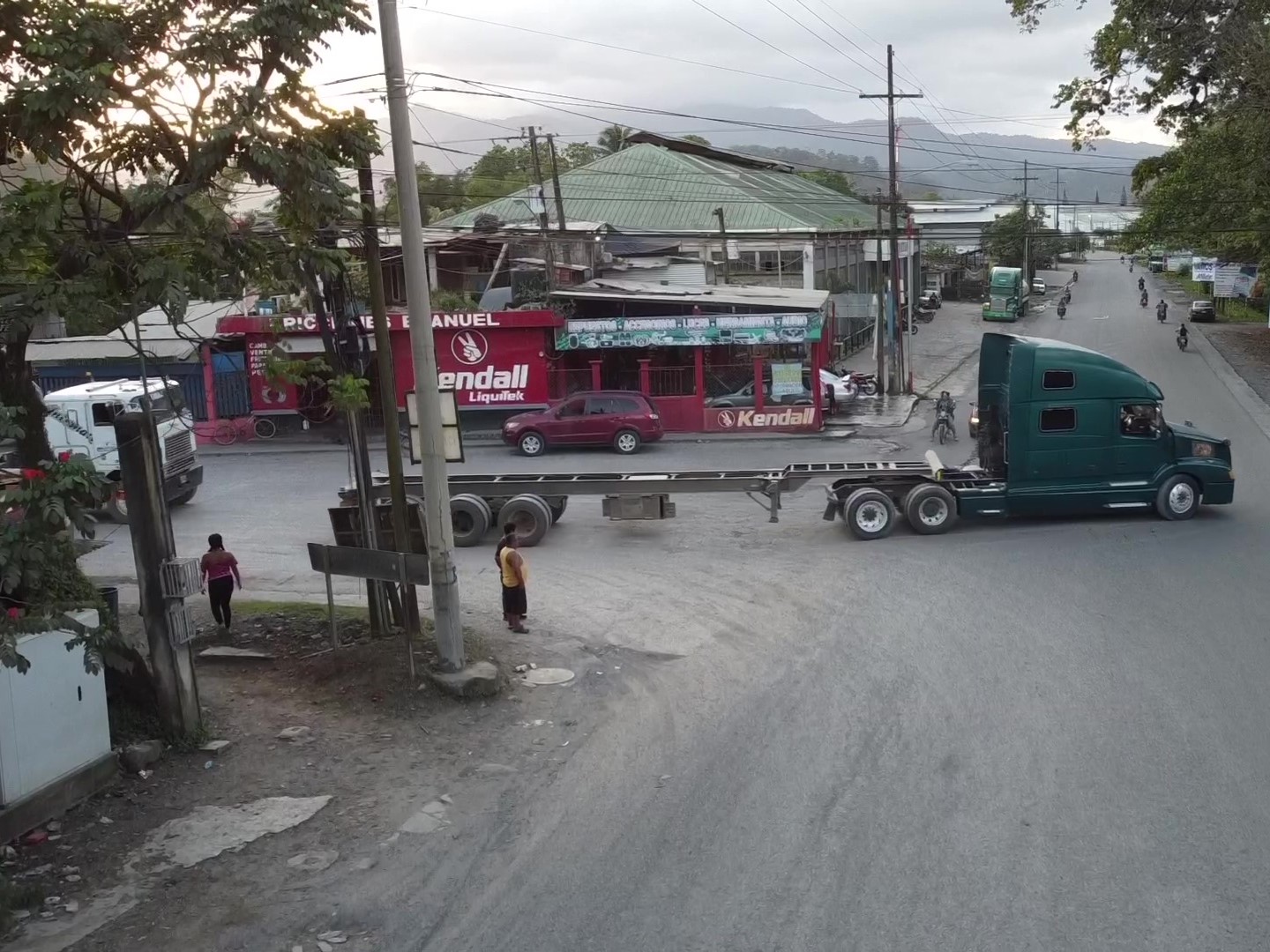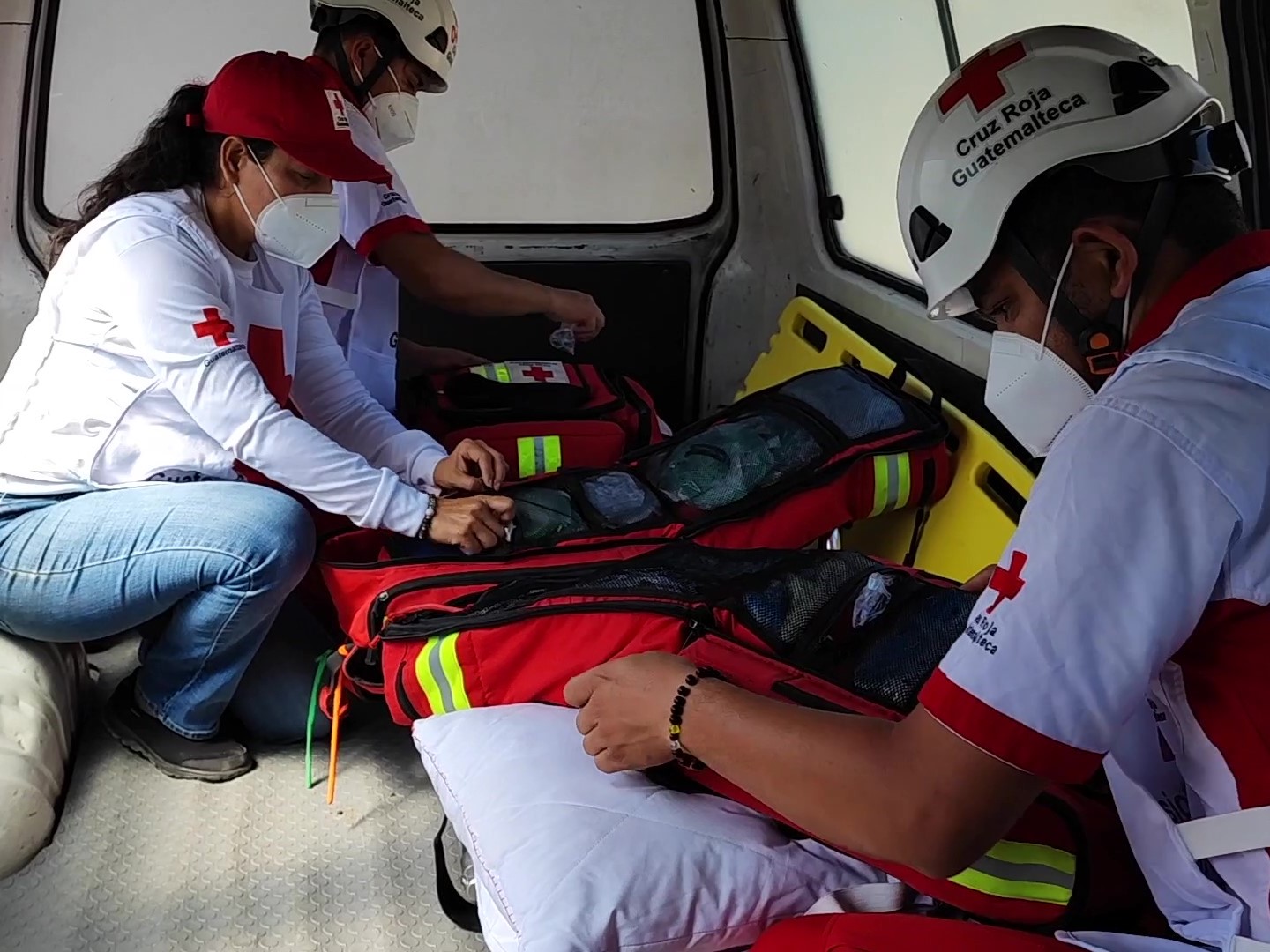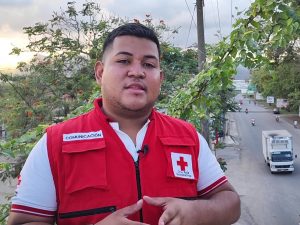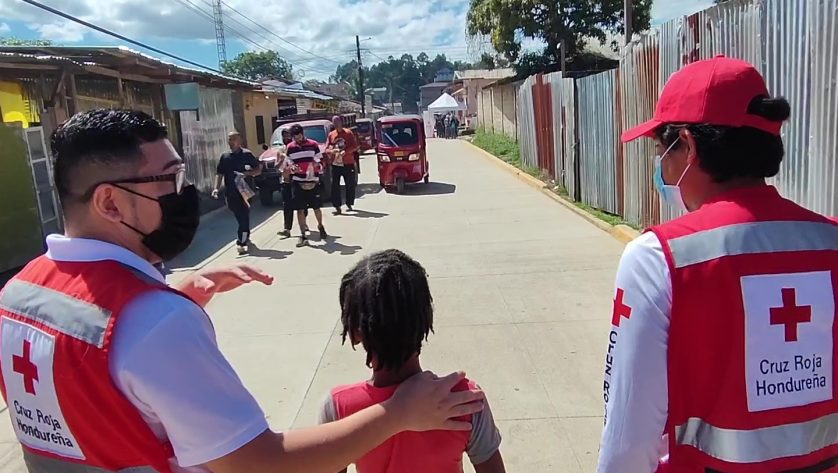Motivated by tragedy
After his father’s accident, Roberto Ardón decided to volunteer with the Guatemalan Red Cross. The support and service provided to his father motivated him to join the organization, and he has since dedicated his time to helping others.
The emergency calls to the local Red Cross delegation come as no surprise. The crossing to Santo Tomás de Castilla via the CA-9 road is one of the busiest areas and the risk of accidents is very high. “In this area we experience a lot of accidents, especially involving motorbikes,” says Roberto.
Like Roberto, Olimpia de León knows first hand the risks of this road. Her husband also had a serious accident, but at that time there was no Red Cross delegation and the availability of ambulances to transport him to the hospital was very limited or almost non-existent.
Olimpia then decided to work to establish a Red Cross branch in the area. Considering the high risks of accidents, the impact the branch in the community through the work of its volunteers has been very positive. Now, Olimpia is an ambulance driver for the Guatemalan Red Cross in the Santo Tomás de Castilla delegation.
The key to the services provided here is to be empathetic and sensitive to people’s needs. “What I always remind the volunteers is the importance of being able to provide a quality service to people,” explains Yamileth Orellana, Guatemalan Red Cross member in Santo Tomás de Castilla. “Being empathetic will help us to carry out different actions in a consistent way and to be able to do good for people in need”.
 Red Cross Red Crescent magazine
Red Cross Red Crescent magazine 










 Tech & Innovation
Tech & Innovation Climate Change
Climate Change Health
Health Migration
Migration